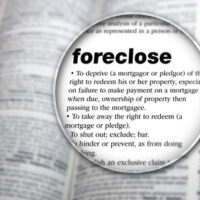Pennsylvania Foreclosure Laws

Pennsylvania homeowners who are facing foreclosure should know that they are not without legal protection, as state law requires lenders to follow a strict process when foreclosing on a property. To learn more about these protections and how they could apply in your own case, please contact an experienced Philadelphia foreclosure defense lawyer who can advise you.
Missing a Loan Payment
Homeowners who take out loans to purchase a residential property and who later miss a loan payment still have a grace period in which they can make the payment without penalty. If, however, this grace period passes, lenders are permitted to assess a late fee, which applies each time the homeowner misses a payment. Knowing how long a grace period is and what a late charge would cost is important for homeowners who want to ensure that they don’t end up paying more than they should. Fortunately, this information is easily accessible, as it should be included on the promissory note signed when the loan was taken out, as well as on the monthly mortgage statement.
Federal Mortgage Servicing Laws
Federal mortgage servicing laws require lenders to contact borrowers by phone and in writing prior to foreclosure. These communications offer the parties a good opportunity to discuss loan modification, payments plans, and forbearance, so homeowners who are contacted by their mortgage company should be sure to respond in a reasonable amount of time. Federal law also prohibits lenders from officially starting the foreclosure process until a borrower is more than 120 days delinquent on payments. Once this deadline has passed, lenders can initiate the foreclosure process, but must still comply with a series of foreclosure-related regulations.
State Foreclosure Law
Under state law, lenders can only start formal foreclosure proceedings after giving the borrower a 30 day notice of intent to foreclose, which provides homeowners with an opportunity to catch up on payments and so cure the default that led to foreclosure. The only time this notice is not required is when the home in question is abandoned. In the event that the initial foreclosure proceedings against a homeowner are dismissed or withdrawn and the homeowner later defaults on payments again, a lender would be required to issue a new notice of intent to foreclose before a second foreclosure complaint could be filed. In most cases, the lender is also required to send a notice to the homeowner explaining their rights and offering information about their options, including their right to apply to the Pennsylvania Housing Finance Agency for assistance.
Finally, homeowners who move out of the home on which they have fallen behind on payments, may face an expedited foreclosure process. This is because Pennsylvania has a fast-track law that allows lenders to skip the foreclosure diversion program and order a foreclosure sale within 60 days when a home is abandoned.
Talk to a Foreclosure Defense Lawyer
If you recently received notice of foreclosure on your property and need more information about the foreclosure process and your potential defenses, please contact Louis S. Schwartz at CONSUMERLAWPA.com today.
Resource:
consumerfinance.gov/policy-compliance/rulemaking/regulations/1024/39/


